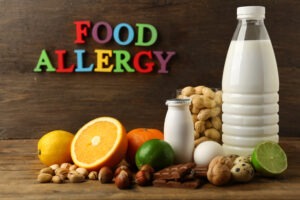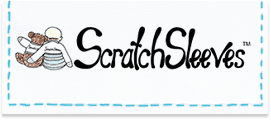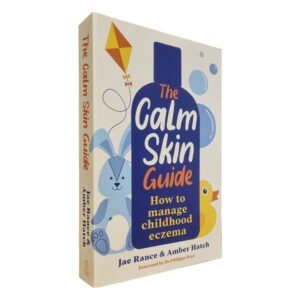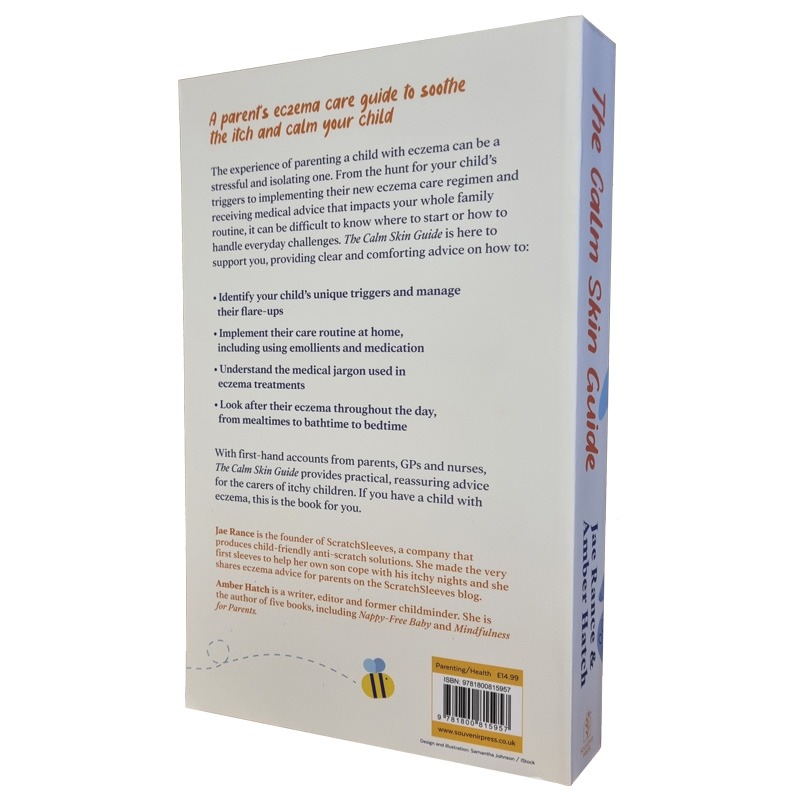Eczema and food: Can food allergies be avoided?



There is growing evidence that early-onset eczema can be a forerunner to food allergies. For example, a study of over 4,000 one year olds in Australia found that one in five infants with eczema were allergic to peanut, egg white or sesame. This is compared to one in 25 infants without eczema1. However, the patterns of both food allergy2 and eczema3 vary widely across countries and cultures. This suggests that the development of food allergies in such a large proportion of eczema babies is not inevitable. We look at current research into food allergies in eczema babies and whether or not they are inevitable.
Food allergies can not only be fatal but also have a huge detrimental impact on quality of life for both the sufferers and their families. They are also costly to both health care service and individual families. One European study estimates that families of food allergy sufferers spend an extra €791 per year4. With all that in mind, researchers are investigating the relationship between eczema and food allergies. Not surprisingly, they are focusing on how the risk of developing food allergies can be minimised.
Initially, it was thought that children become sensitised to food allergens by early exposure through the gut. This could be via food proteins making their way in breast milk or early consumption. However, there is increasing evidence that it is actually exposure to food allergens through the skin causes food allergies. Whereas early exposure through eating creates a tolerance. This pattern has become known as the dual allergen exposure hypothesis. It is thought that the weakened skin barrier associated with eczema increases the risk of food allergens making their way into the skin. This explains the increased rate of food allergy development in babies with eczema. You can read more about how food allergies develop here.
Reducing food allergies by early introduction of allergenic foods
LEAP study
The 2016 LEAP study was inspired by the low rate of peanut allergies among children in Israel. Here babies commonly eat a peanut snack from as early as 4 months old. The LEAP study found that children at high risk of developing peanut allergy who were fed ground peanuts from under 1 year of age and included it regularly in their diets until they were 5 had an 86% reduction in peanut allergy compared to the children who avoided peanuts5.
EAT study
This study was followed by the 2017 EAT study. This study looked at the effects of early introduction of six foods (peanut, egg, cow’s milk, sesame, whitefish, and wheat) in infants between 3 to 6 months of age. This early introduction occurred alongside continued breastfeeding. A control group was exclusively breastfed until 6 months of age and then weaned per current guidelines. The EAT study reported a significant decrease in the number of children from a general population developing peanut and egg allergy by 3 years of age in the early introduction group. This was despite reported difficulties in parents being able to stick to the feeding guidelines. The rates of other food allergies were not high enough to show significant effects. However, the measured effects were encouraging5. Another 5 trials have confirmed these findings with respect to preventing egg allergy.
SPADE study
The 2021 SPADE study looked at whether cow’s milk allergy could be prevented by the introduction of regular formula milk. This study concluded that the babies who were regularly supplemented with small amounts of cow’s milk based formula (10ml per day) alongside breast milk from 1-2 months old had a substantially lower risk of developing an allergy to cow’s milk than babies who were exclusively breast fed7. This study also showed that the formula supplementation needs to be consistent. Babies that were introduced to cow’s milk formula in the first few days of life but then switched to being breastfed were just as likely to develop a milk allergy as the non-supplemented babies.
Updated weaning guidelines for eczema babies
Weaning guidelines are starting to reflect this new evidence. In the USA, the NIAID guidelines encourage the active introduction of peanut protein into the diet of high risk infants (those suffering from eczema or with a confirmed egg allergy) at 4-6 months. In Australia, the ASCIA guidelines encourage the introduction of all allergic foods to all infants from 4 months. Here in the UK, the BSACI recommends introducing solids to high risk babies when they are physically ready. In practice this means around 6 months old, but not before 4 months. In the UK, high risk babies are defined as those with eczema or a sibling with a confirmed food allergy. Regardless of when you start weaning, if you’re breastfeeding all of these guidelines recommend that you continue to do so while introducing solid foods.
Next steps
One of biggest challenges for participants of these trials was sticking to the feeding regime. Only small amounts of the allergenic foods are needs each day but they need to be consumed consistently. Food preparation was time-consuming and sometimes wasteful. To combat this problem a Japanese research team came up with a powder containing proteins of 6 allergenic foods8. Trial participants found the powder much easier to use than the regular foods using in previous trials. As a result, the trials using these protein powders have a much lower drop-out rate making for better quality results. They also allowed for proper randomisation with the control group being given a placebo powder. These powder based trials show similar results to the earlier, food-based trials. They confirm that early introduction of just tiny amounts of allergen proteins reduces the risk of later food allergies8,9.
While there are commercially available powders marketed as aiding the prevention of food allergies, these should be treated with caution. There are concerns about the safety of using these without medical supervision and prior screening for pre-existing sensitivities. There have several been reports of associated allergic reactions.
Reducing food allergies through skin care
Based on increasing evidence that sensitization to food allergens occurs through damaged skin, it seems logical that maintaining a good skin barrier could potentially reduce the risk of developing food allergies. As you would expect, there is plenty of research going on in this area. However, managing eczema is rarely simple and, while the findings of pilot studies have been encouraging, larger scale studies are demonstrating that it is not just a case of using an emollient regularly.
BEEP Study
The BEEP trial demonstrated that using simple petroleum based emollients, commonly used in the NHS, had no impact on the level of eczema and food allergies at age 2. It also found an increase in the occurrence of skin infections associated with regular use of emollients, highlighting the need for good hand hygiene when applying emollients to your baby.
PEBBLES study
However, the pilot study for the ongoing PEBBLES trial, which is using a more modern, trilipid emollient containing ceramide (EpiCeram) found a substantial reduction in both eczema and food allergy after 6 months twice daily use10. Trilipid emollients contain the lipids ceramide, cholesterol and fatty acids (ideally a 3:1:1 ratio), this triple lipid combination mirrors the normal fat content in the skin and aims to support a normal skin barrier. It has a similar effect to topical steroid creams, without the associated risks.
PACI study
Another study in Japan using hospital records showed that if moderate and severe eczema is treated with steroid creams both proactively (applying steroid creams intermittently even when the skin is clear) and early (before 4 months) there is a 2 fold reduction in food allergies at 2 years compared to conventional eczema management (only using steroid creams to control flare-ups)11. It is thought that the anti-inflammatory effect of the steroid creams is an important factor in the repair of the skin barrier. This was followed up by the PACI trial which confirmed these findings in a much bigger population12.
Assuming that these trials confirm the results of their pilot studies, it is likely that skin care guidelines for babies with eczema will be updated. In the meantime, it makes sense to ask your doctor for a trilipid emollient for your little one and to follow their advice when using emollients and steroid creams.
The role of vitamin D in food allergies
Vitamin D is known as the ‘sunshine vitamin’ as it is produced in the body through sunshine on the skin. It is essential for good health and plays a major role in the maintenance of healthy bones by helping the body to absorb calcium. It also has an essential role in immune system function.
Lower levels of allergy are typically found in populations nearer the equator and higher levels of allergy occur in autumn born babies. As food allergies have increased, vitamin D levels in the population appear to have concurrently decreased. It has been estimated that up to 50% of people in the developed world have low vitamin D levels and up to 10% are vitamin D deficient.
It is not yet clear exactly how vitamin D reduces the risk of food allergies but it has been shown to be important in the mucus barrier in the stomach which prevents allergens leaking into the body (see our post on leaky gut syndrome here) and in the regulation of the immune system.
While formula milk is fortified with vitamin D and contains an adequate amount, breast milk does not. Government guidelines across the developed world recommend giving a daily supplement containing 8.5 to 10mcg of vitamin D to breastfed babies13. Eggs are also a good source of vitamin D, so including eggs into your little one’s diet is another good way to reduce the risk of food allergies.
So how can a reduce my eczema baby’s risk of food allergy?
This has been a bit of a long read, sorry about that – it’s difficult to get such a complicated and fast moving subject into a few words. Here are some simple action points that you can take to minimise the risk of your eczema baby’s risk of developing food allergies as they grown up.
- Don’t avoid allergenic foods. If you’re breastfeeding (or pregnant), make sure that you eat a good, varied diet including the potentially allergenic foods. There is a good chance that some of the proteins that you eat will find their way to your baby, teaching their immune system that these a safe foods.
- Keep their skin looking as good as possible. Be diligent with the emollients and use steroid creams as prescribed. The risks associated with food allergies are far greater than those associated with steroid creams.
- Wash your hands. By washing your hands before coating your baby in (yet more) emollient you will minimise the chance of you baby coming into contact with food proteins through their skin. It’s also a good idea to get into the habit of washing your hands after eating or preparing food.
- Don’t delay weaning. If your baby is over 4 months and ready for food, go for it. Make sure that you introduce potential allergens early and then offer them consistently. You can read more about weaning an eczema baby here.
- Fed you child a varied diet. Once weaned, feed your child a good varied diet including plenty of vitamin D. You can read more about the benefits of eating well for eczema here.
Our sources
- Martin et al 2015, Which infants with eczema are at risk of food allergy? Results from a population-based cohort. https://pubmed.ncbi.nlm.nih.gov/25210971/
- Asher et al. 2006. Worldwide time trends in the prevalence of symptoms of asthma, allergic rhino-conjunctivitis, and eczema in childhood: ISAAC Phases One and Three repeat multi-country cross-sectional survey. https://pubmed.ncbi.nlm.nih.gov/16935684/
- Lo and Tang. 2018. The Epidemiology of Food Allergy in the Global Context. https://www.ncbi.nlm.nih.gov/pmc/articles/PMC6163515/
- Wai et al. 2019. Pediatric food allergy-related household costs are influenced by age, but not disease severity. https://www.ncbi.nlm.nih.gov/pmc/articles/PMC6796906/
- Du Toit et al. 2015. Randomized trial of peanut consumption in infants at risk for peanut allergy. https://pubmed.ncbi.nlm.nih.gov/25705822/
- Perkin et al, 2016. Enquiring About Tolerance (EAT) study: Feasibility of an early allergenic food introduction regimen. https://pubmed.ncbi.nlm.nih.gov/26896232/
- Sakihara et al. 2021. Randomized trial of early infant formula introduction to prevent cow’s milk allergy. https://pubmed.ncbi.nlm.nih.gov/32890574/
- Nishimura T et al. 2022. Early introduction of very small amounts of multiple foods to infants: A randomized trial. https://pubmed.ncbi.nlm.nih.gov/35367136/
- Quake et al. 2022. Early Introduction of Multi-Allergen Mixture for Prevention of Food Allergy: Pilot Study. https://pubmed.ncbi.nlm.nih.gov/35215387/
- Lowe et al. 2017. A randomized trial of a barrier lipid replacement strategy for the prevention of atopic dermatitis and allergic sensitization: the PEBBLES pilot study. https://pubmed.ncbi.nlm.nih.gov/28639306/
- Miyaji et al. 2019. Earlier aggressive treatment to shorten the duration of eczema in infants resulted in fewer food allergies at 2 years of age. https://pubmed.ncbi.nlm.nih.gov/31821918/
- Yamamoto-Hanada K et al. 2022. Enhanced early skin treatment for atopic dermatitis in infants reduces food allergy. https://pubmed.ncbi.nlm.nih.gov/36963619/
- NHS. Health Breast fed diet. https://www.nhs.uk/start4life/baby/feeding-your-baby/breastfeeding/healthy-diet/vitamins-for-mum-and-baby/
Here at ScratchSleeves, we don’t just share our experiences of bringing up an eczema child and favourite allergy-friendly recipes, we also manufacture and sell our unique stay-on scratch mitts and PJs for itchy babies, toddlers and children. We now stock sizes from 0-adult years in a range of colours. Visit our webshop for more information.
The Calm Skin Guide
Love our blog? It's also available in book format with:
- First hand accounts from parents & medical professionals
- Easy navigation
- Comprehensive index
- Additional material
Signed copies available at no extra cost
Written by:
Interesting article? Don't keep it to yourself...
Read next...
You may also find helpful...
Quick buy


Multi Buy Discount

Spend between £30 - £60 and save 5%
Spend between £60 - £120 and save 10%
Spend over £120 and save 15%
Discount automatically applied at checkout
No Quibbles Guarantee

ScratchSleeves abide by a no quibbles guarantee.
Free UK Postage

Free packing and postage on all UK orders. For overseas orders to Europe postage is from £3.50, to USA is £6.50 and to the rest of the world, from £3.75.






